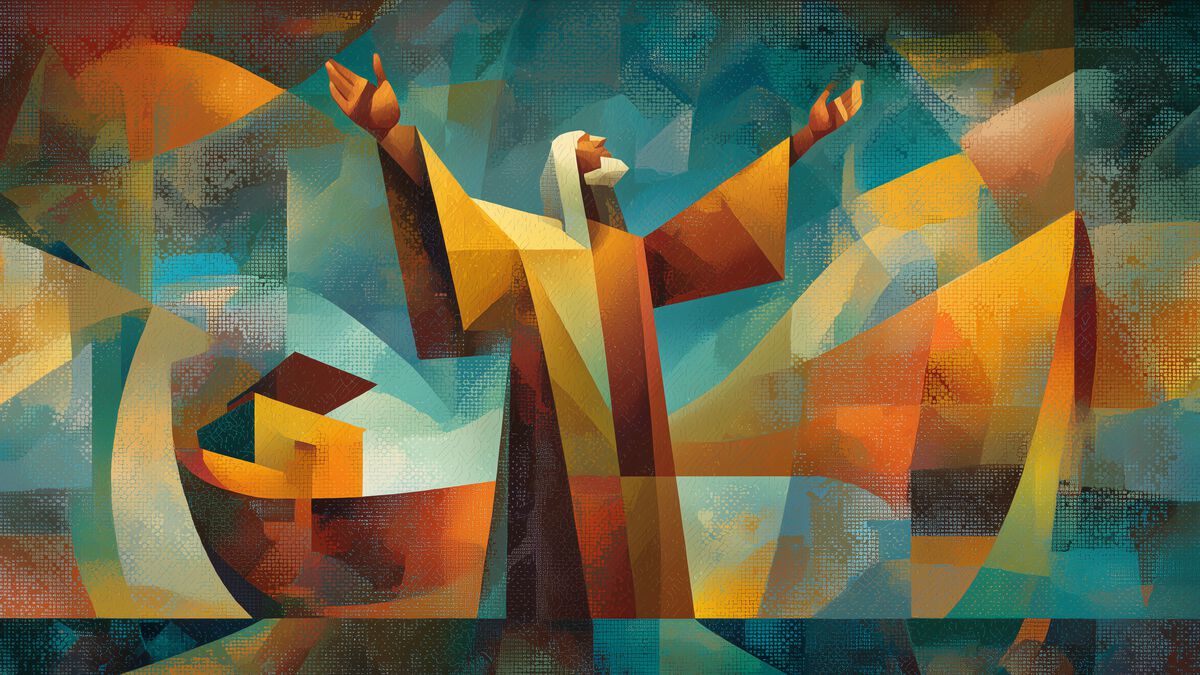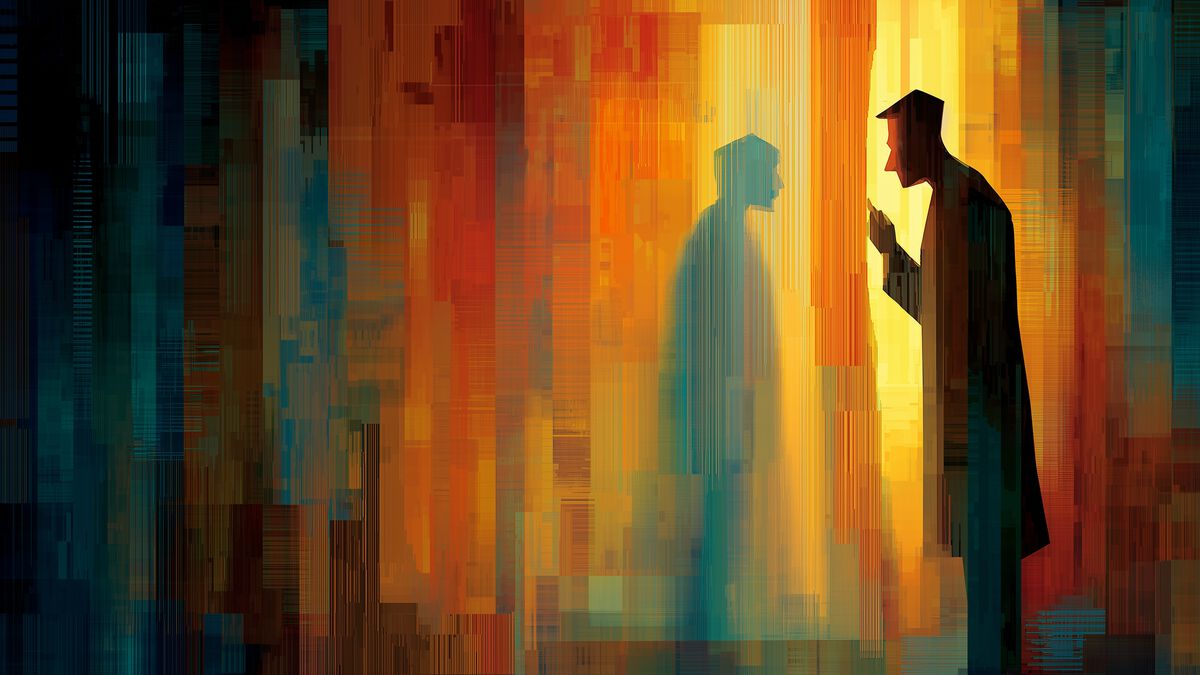Brief Comparison of Cosmism and Transfigurism
Lincoln Cannon
4 January 2010 (updated 4 January 2026)
Anarchist, atheist, Buddhist, Extropian, libertarian, Mormon, Singularitarian, technoprogressive … and Cosmist are among the many self-identifications that sometimes accompany Transhumanist self-identification. Below are some quick thoughts on how the Ten Cosmist Convictions, as authored by Giulio Prisco and Ben Goertzel, compare to my perspective as a Mormon Transhumanist. Some of the comparisons merit more elaboration than I give them here. But they will, I expect, yet provide some insight into compatibilities between these views.
“1) Humans will merge with technology, to a rapidly increasing extent. This is a new phase of the evolution of our species, just picking up speed about now. The divide between natural and artificial will blur, then disappear. Some of us will continue to be humans, but with a radically expanded and always growing range of available options, and radically increased diversity and complexity. Others will grow into new forms of intelligence far beyond the human domain.”
Cosmism and I share the perspective that, barring global catastrophe, humans will continue to merge with our technology at an accelerating rate. Perhaps another way of thinking of this would be that we will continue to internalize our technology at an accelerating rate, since tech-as-prosthetic has long been part of what it means to be human. For practical and moral reasons (see the New God Argument), I posit that we are neither the only nor the first civilization to do this, which resonates with Mormon tradition that tells of emergent Gods creating worlds without end.
“2) We will develop sentient AI and mind uploading technology. Mind uploading technology will permit an indefinite lifespan to those who choose to leave biology behind and upload. Some uploaded humans will choose to merge with each other and with AIs. This will require reformulations of current notions of self, but we will be able to cope.”
Cosmism and I both anticipate the development of sentient artificial intelligence, although it’s not clear to me whether we may differ in our judgment of the value of uploaded intelligence. This requires exploring the meaning of “uploaded intelligence,” which I’ll do only briefly here.
Intelligence can never be fully uploaded unless we are already fully uploaded (computed worlds all the way down). So it’s not useful to understand “uploaded” in any superlative sense.
Rather, we could understand it to mean something like (a) the extent to which an intelligence can interact with its PRESENT substrate, or (b) the extent to which an intelligence is independent of its PAST substrates. If “a” then perhaps an uploaded intelligence would be disempowered in at least one important way relative to a non-uploaded intelligence. If “b” then perhaps an uploaded intelligence would be empowered in at least one important way relative to a non-uploaded intelligence. I consider “enhanced intelligence” to be a better descriptor for “b” because of the respective commonsense connotations of “uploaded” and “enhanced,” and because it seems reasonable to suppose that one need not give up any power over one’s present substrate to achieve increased independence from past substrates.
In striking contrast with many other religions, Mormonism holds that embodiment (rather than disembodiment), as a step toward Godhood, is empowering and good. For Mormons, heaven is not fully attained until the dead are resurrected and embodied anew.
“3) We will spread to the stars and roam the universe. We will meet and merge with other species out there. We may roam to other dimensions of existence as well, beyond the ones of which we’re currently aware.”
I share with Cosmism a trust in, and even childlike anticipation of, our potential to explore the universe, as presently conceived, and whatever may be beyond that. Mormon scripture references innumerable inhabited worlds, both similar to our own and as diverse as globes of fiery glass, and proclaims that no knowledge will be withheld: whether there be one God or many, if there be bounds to the heavens, they will be manifest. Buzz Lightyear put it best: “To infinity and beyond!”
“4) We will develop interoperable synthetic realities (virtual worlds) able to support sentience. Some uploads will choose to live in virtual worlds. The divide between physical and synthetic realities will blur, then disappear.”
The Fourth Cosmist Conviction is compatible with my expectations regarding the diversity of worlds to create and discover. Mormon tradition tells of spirit worlds inhabited by disembodied intelligences, worlds like our own, worlds populated by immortals, and the worlds of Gods, who are engaged in organizing yet more worlds. As the tradition goes, some of these intelligences have spiritual bodies, which are neither disembodied intelligence nor like our own, but rather are spirit and body “inseparably connected.” Such ideas resonate with the Cosmist assertion that the divide between physical and synthetic realities will blur and eventually disappear.
“5) We will develop spacetime engineering and scientific ‘future magic’ much beyond our current understanding and imagination.”
The Cosmists join Arthur Clark in expecting that future technology will be, at least for those uninitiated in the particulars, indistinguishable from magic. I concur, and contend that’s already true. Already, many of us are waving wands and reciting incantations, enabled by information technology, that relatively few of us understand. It is with tongue only-mostly-in-cheek that some Mormons suggest the iPhone to be fulfillment of prophecy that the inhabitants of heaven will receive a stone from which they may learn about greater heavens.
“6) Spacetime engineering and future magic will permit achieving, by scientific means, most of the promises of religions – and many amazing things that no human religion ever dreamed. Eventually we will be able to resurrect the dead by ‘copying them to the future’.”
I agree with the Sixth Cosmist Conviction, that science and technology will enable realization of most prophecies, including resurrection of the dead – PARTICULARLY resurrection of the dead. Given interpretive creativity and advancing technology, prophecies WILL be fulfilled.
Whether they’re mostly fulfilled or totally fulfilled matters far less than our anticipation of their fulfillment, and not only because it may inspire us with hope, joy, or excitement. In addition to fulfillment of wonderful prophecies, we risk fulfillment of horrible prophecies. And we should prepare to mitigate the extent of their realization.
The book of Jonah, in the Bible, tells of a prophecy of destruction that the inhabitants of Nineveh avoided by changing their behavior. Regardless of whether we consider the story historical or their behavior superstitious, we can and must learn from and emphasize the broader lesson. In a sense, it’s practical to be superstitious to the extent that we know others to be superstitious because it affects their behavior and should therefore affect our anticipatory behavior.
Consider the compilation, Global Catastrophic Risks. It doesn’t take much creativity to interpret the Bible or other religious texts as predicting such catastrophes. And, unfortunately, some benighted persons combine such interpretations with assurance that fulfillment of such prophecies is essential to our future.
We must mitigate their behavior by changing our behavior. Otherwise, the horrible prophecies, too, will be realized.
“7) Intelligent life will become the main factor in the evolution of the cosmos, and steer it toward an intended path.”
Cosmist anticipation of intentional evolution resonates with me. However, for practical and moral reasons (again, see the New God Argument), I posit that evolution is already occurring within an intentional context – which is not the same as positing that evolution is entirely intentional.
Joseph Smith, the founder of Mormonism, taught that God found himself in the midst of lesser intelligences and matter, which he set about organizing to help the others become like him.
I imagine our civilization engineering new universes, new verses of time and space in a multiverse, each better tuned for the emergence of more intelligent universe-engineering beings. I also imagine that already happening. Perhaps we will participate in brightening the light of intelligence throughout an indefinite cosmos.
As described in Mormon tradition, we are Gods in embryo, children of God, and joint-heirs in the glory of God.
“8) Radical technological advances will reduce material scarcity drastically, so that abundances of wealth, growth and experience will be available to all minds who so desire. New systems of self-regulation will emerge to mitigate the possibility of mind-creation running amok and exhausting the ample resources of the cosmos.”
The Cosmist anticipation of material abundance also resonates with me in a measured sense. I do anticipate that we’ll enjoy relative abundance in the future. However, I also expect new scarcities to emerge, and do not think any complacency is now or ever will be justified. Peace and happiness will always depend on our diligence.
Like many other religions, Mormonism foretells a time when the Earth will become paradise, wars will cease, lives will be extended, and joy will multiply. Yet Mormonism also qualifies this with a warning that the Millennial paradise may end in a time of evil exceeding any before it. These promises and perils in Mormon mythology present an important contrast, a tension that may inform a more solid and practical stance toward the risks and opportunities of the future.
“9) New ethical systems will emerge, based on principles including the spread of joy, growth and freedom through the universe, as well as new principles we cannot yet imagine.”
Generally speaking, I agree with the Cosmist assertion that new ethical systems will continue to emerge. We’ve seen that throughout recorded history. And I know of no reason to suppose that will change.
However, I think it’s worth exploring the idea that there are meta-ethical systems, based in persistence and distribution of power (broadly defined), that may not have changed with time any more than have the laws of physics. Mormon tradition posits a sort of tension between eternal laws, within the bounds of which God must work, and contextual laws that are within God’s control.
“10) All these changes will fundamentally improve the subjective and social experience of humans and our creations and successors, leading to states of individual and shared awareness possessing depth, breadth and wonder far beyond that accessible to ‘legacy humans’.”
I share the Cosmist anticipation of new experience beyond our present capacities. Mormon scripture suggests that we cannot endure or know the glory of God without first being transfigured, and that presently-constituted humans are nearly nothing in comparison. The scriptures also tell of glorified communities and exalted bodies as diverse as the stars in the heavens. Such ideas, in my estimation, begin properly to calibrate our assessment of human nature relative to the vast possibility space of being – “begin” because, even after internalizing such ideas, we yet greatly underestimate the possibility space, which is surely far greater than the number of particles that will ever be available to my brain as fuel for contemplation.
One final idea to express. When writing about Mormon mythology, I intend to express neither fiction nor fact merely. Rather than an epistemic discourse, I intend an esthetic discourse that reflects the ritual meaning at the heart of my religious heritage, which is often more powerful than either fiction or fact alone. More about that another time.



